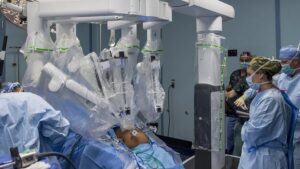
The LGBTQ+ community faces unique challenges when it comes to mental health and substance abuse, particularly opiate addiction. Unfortunately, many members of this community struggle with issues that are different from those experienced by the general population. This post will explore the reasons why tailored treatment for opiate addiction is essential for the LGBTQ+ community and how these programs can make a significant difference.
The Impact of Opiate Addiction on the LGBTQ+ Community
Opiate addiction is a serious problem across all demographics, but for the LGBTQ+ community, the situation can be even more complicated. These factors often contribute to a higher likelihood of turning to substances like opioids as a coping mechanism.
Studies have shown that LGBTQ+ individuals are at an increased risk of substance abuse, including opiate addiction, due to stressors such as stigma, social isolation, and lack of support from family or community. This makes LGBTQ+ Opiate Addiction Treatment programs not just beneficial but crucial in addressing the unique experiences and challenges of this community.
Why General Treatment Programs Fall Short
Traditional addiction treatment programs are often designed for a general population and may not address the specific needs of LGBTQ+ individuals. In a standard treatment setting, LGBTQ+ people may feel misunderstood or judged, leading to discomfort or even reluctance to seek help. Additionally, the fear of facing discrimination or being outed during treatment can deter LGBTQ+ individuals from entering recovery programs at all.
This is why LGBTQ+ Addiction Treatment Programs are essential. These programs offer a safe, inclusive space where LGBTQ+ individuals can receive the support they need without fear of judgment. A LGBTQ Addiction Center provides an environment where patients are understood, supported, and given the best chance for recovery.
How Tailored Treatment Programs Help
LGBTQ+ Opiate Addiction Treatment Programs are designed with the unique experiences of LGBTQ+ individuals in mind. These programs recognize that addiction doesn’t happen in a vacuum and that LGBTQ+ individuals often face challenges like homophobia, transphobia, and trauma that can drive substance use. In a tailored program, therapists and counselors are trained to understand these specific issues and offer strategies to overcome them.
Tailored treatment programs often address:
- Safe Spaces: Many LGBTQ+ individuals fear discrimination in traditional healthcare settings. A LGBTQ+ Opiate Addiction Treatment Program provides a safe and welcoming environment, allowing individuals to open up about their experiences without the fear of being judged for their sexual orientation or gender identity.
- Peer Support: Connecting with others who have similar experiences can be incredibly powerful in the recovery process. In an LGBTQ+ addiction center, individuals are surrounded by peers who understand their unique struggles, making it easier to form supportive relationships that encourage long-term recovery.
The Importance of Affirming Care
Affirming care means recognizing and validating the identity of the individual seeking treatment. In an LGBTQ Addiction Center in Massachusetts, staff members are trained to respect and affirm a person’s sexual orientation and gender identity, which is a crucial aspect of the healing process. This approach helps individuals feel seen and heard, allowing them to engage more fully in their treatment.
Affirming care can include offering specialized support for transgender individuals, such as hormone therapy management during recovery or providing resources for dealing with discrimination in healthcare settings. By creating a space where LGBTQ+ individuals feel respected and valued, tailored programs increase the chances of successful treatment outcomes.
Addressing Trauma in LGBTQ+ Opiate Addiction Treatment
Trauma is a common factor in addiction, and for LGBTQ+ individuals, trauma can come from various sources such as family rejection, bullying, or societal stigma. Effective LGBTQ+ Opiate Addiction Treatment programs focus on trauma-informed care, helping individuals work through past trauma while addressing their addiction.
By treating both the addiction and the trauma, tailored treatment programs offer a more holistic approach to recovery. This kind of comprehensive care can help LGBTQ+ individuals break the cycle of addiction and build healthier coping mechanisms.
Conclusion: Why LGBTQ+ Addiction Treatment Programs Are Essential
The LGBTQ+ community faces unique challenges when it comes to opiate addiction, and these challenges require specialized treatment. Traditional programs may not provide the understanding, support, or safe environment that LGBTQ+ individuals need to succeed in their recovery. That’s why LGBTQ+ Opiate Addiction Treatment Programs are so important—they offer a space where LGBTQ+ individuals can heal, recover, and build a better future in an environment that respects and supports their identity.






